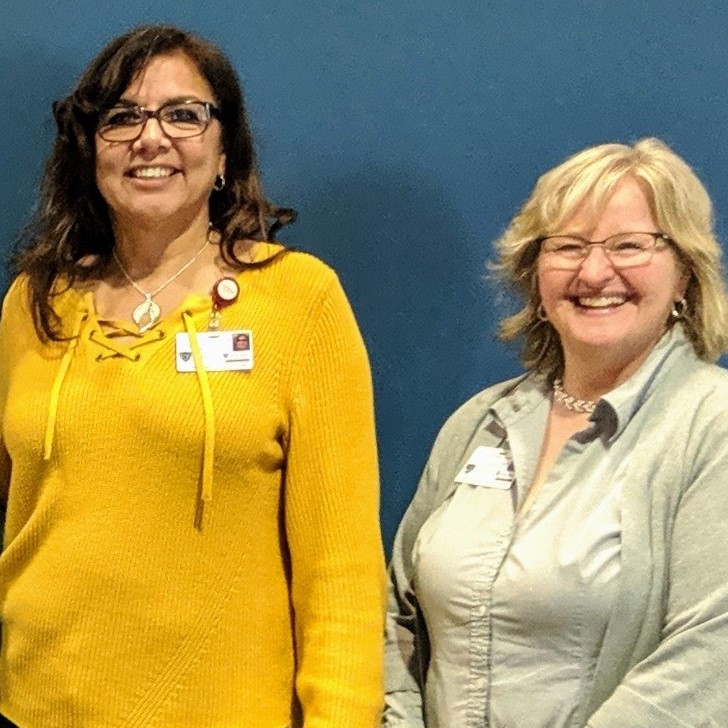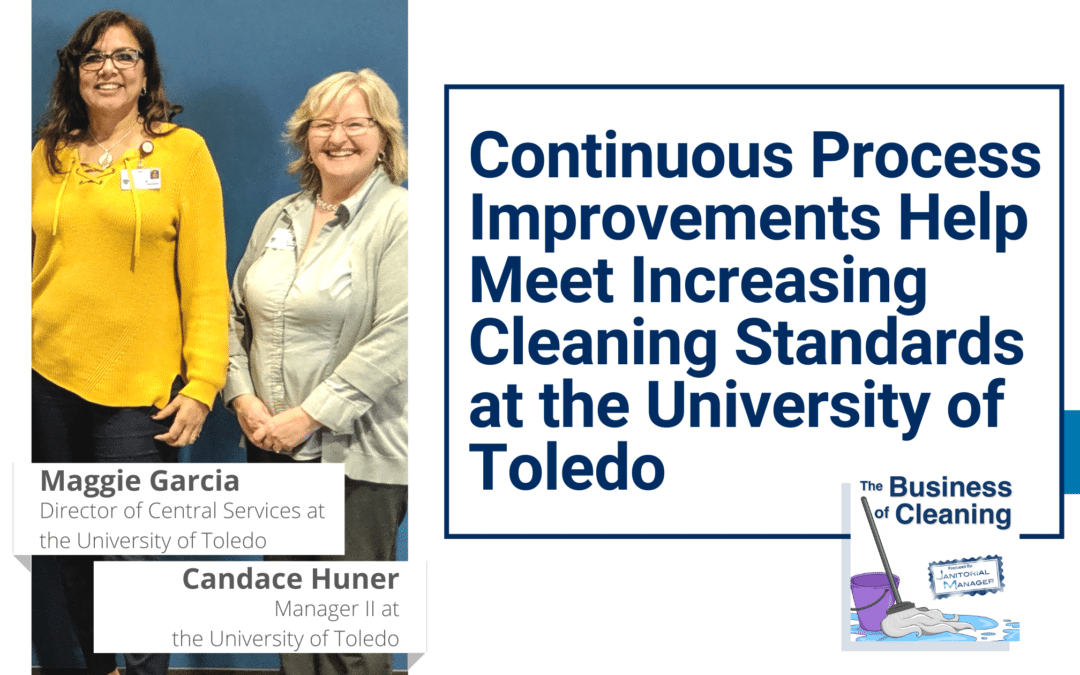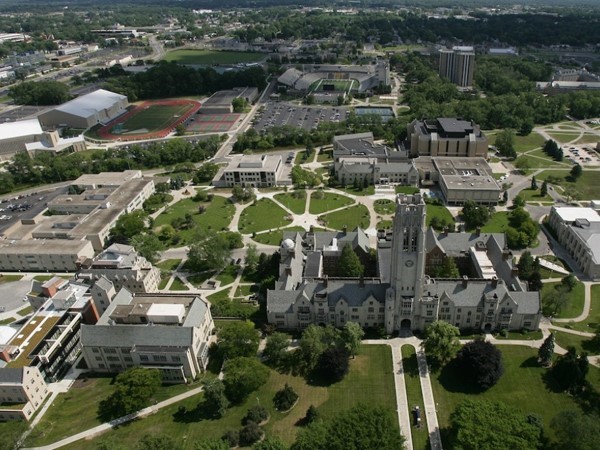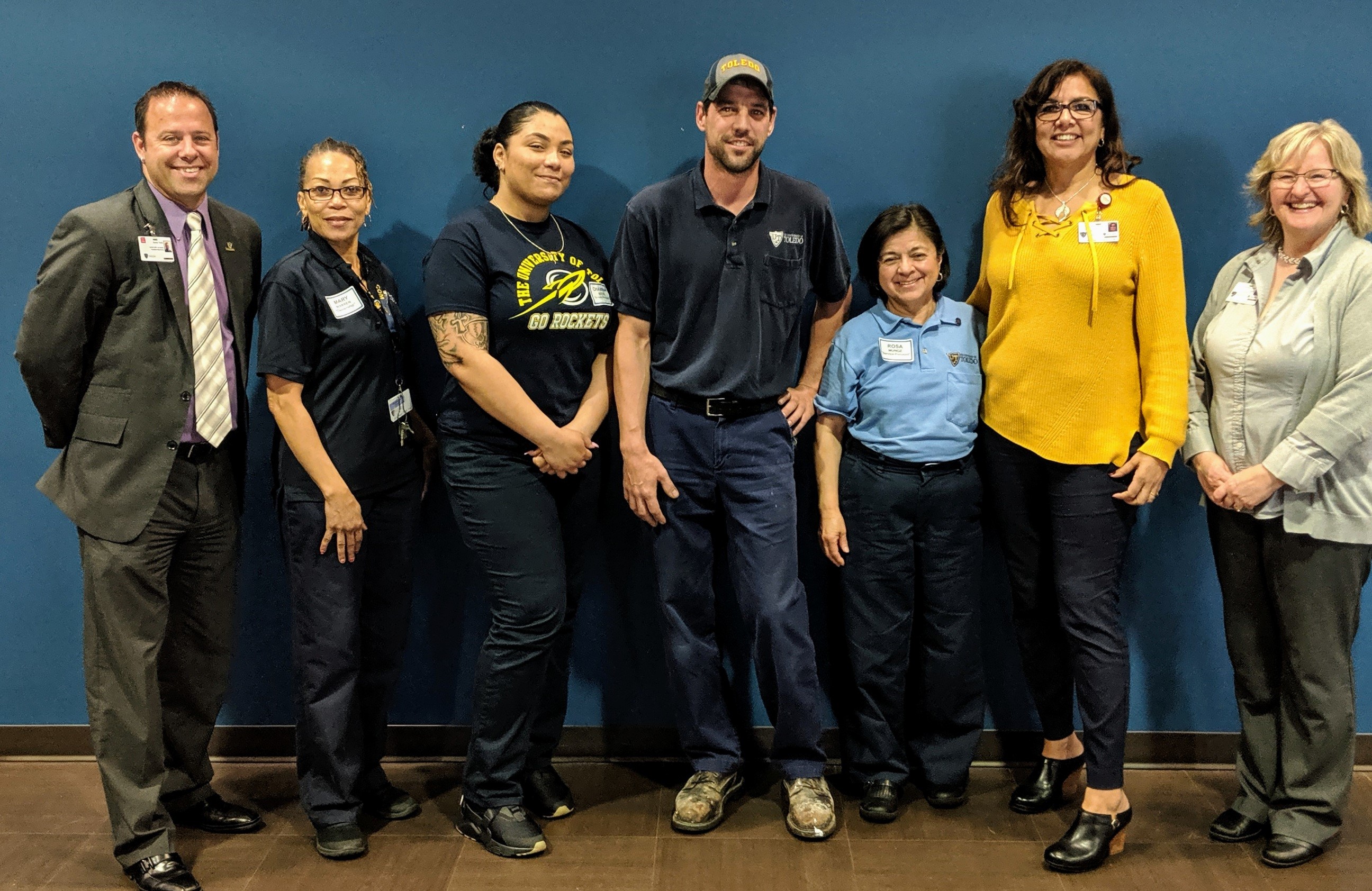Audio Version
Podcast Transcription
Video Version
Between high standards and the difficulties caused by the pandemic, cleaning companies have had to learn the true meaning of change. We sat down with the University of Toledo’s custodial team to talk about how they’re working hard to meet new expectations and do the right thing for their frontline workers.
The Impact of the Pandemic on Campus Cleaning
Like everyone else, the University of Toledo team was impacted by the pandemic. Students were sent home for spring break in 2020 with the false promise of returning in a few week’s time. For graduating seniors and many others, that would be the last time they would step foot on campus. However, that didn’t mean the custodial team’s work halted.

Instead, there was a layer of complexity added as budgets tightened and expectations rose.
Not only was there concern about cleaning processes from people who had never given the custodial staff a second glance, but vendors were busy parading the latest and greatest as the list of chemicals approved to fight the virus was dismally small.
Maggie and her team had to really consider what they actually needed. She looked at all the newest things and ultimately only purchased a few sprayers to be able to target rooms in between classrooms, a new task they were undertaking to keep students as safe as possible. They also adopted the charge buckets, which made it easier to pull out a clean microfiber cloth for each new surface.
Candance now also uses ATP monitoring tools in her inspections to rapidly test surfaces for the presence of ATP. ATP, or Adenosine Triphosphate, is present in the metabolic processes of all living systems, meaning that if there is a living microorganism on the surface they can detect it and in what amount it is present. ATP monitoring has typically been used in the food and barrage industry but has become more popularized in the cleaning industry as a method to check the cleanliness of a surface, particularly in high traffic areas.
The pandemic didn’t just cause them to clean more frequently. Quite frankly, they don’t have unlimited staff to be able to clean everything at a higher frequency. It really meant they had to rethink their priorities and how they did their jobs.
Image Credit: University of Toledo
High Touchpoint Areas and Frequency
One of the biggest shifts Maggie and Candace’s teams made was how they hit high touchpoint areas and the frequency of which they clean different types of spaces.
For example, with only so many people available to clean and so many hours in the day, high-traffic public spaces take precedence over personal office spaces that can be cleaned by the teacher using them. Not that the cleaning staff neglects those spaces, but they don’t clean them as often as they do the high touchpoint areas like door handles, desks, and study areas.
This also means carefully considering what cleaning chemicals their teams are using and their dwell times.
Not only do the chemicals need to be safe for the surfaces they’re coming in contact with but they need to be safe enough to come into contact with skin and to breathe in on a daily basis. The custodial teams will be using most of them throughout the day every day they work. They also need to consider how the chemicals are able to be stored and dispensed.
Maggie also looks at dwell times carefully. Chemicals and disinfectants used in high traffic areas need short dwell times as students, staff, and often guests come in contact with those surfaces shortly after.
Scheduling Changes
The University of Toledo’s custodial workers has typically cleaned at night in the years leading up to the pandemic. The weird logic that these hard-working people should not be seen and that everything is magically cleaned when no one is looking has been deeply ingrained in our society for too long.
Like in many other spaces, this is idea has finally been thrown out the window on UT’s campus. Most of their staff now cleans throughout the day and are able to respond to situations as they crop up. Students and staff are also now better able to appreciate their efforts.
Image Credit: University of Toledo
Custodial Training
With frequent changes and high standards in place, even prior to COVID-19 sweeping across the world, Maggie has made training a priority for her teams. They pay a lot of attention to making sure that their custodians are following the right process so that surfaces are cleaned and disinfected properly while making sure that employees are safe.
If they find that an area is reading too high with ATP or they notice a process not being followed, they are able to quickly assess the situation and retrain where necessary.
Maggie looks at what the hospitals are doing to set their standard for clean and use ATP monitoring to test their success. This may seem a difficult goal to obtain, but not once in the interview with Maggie and Candace did they talk about it being unrealistic or hard for their teams. In fact, thanks to their studiousness and dedication to ongoing training for everyone, they are able to meet these goals time and time again.
Maggie and Candace are also no strangers to hard work. They both have a strong background in being front-line workers themselves and aren’t afraid to roll up their sleeves and get to work. They fully understand the work that their teams are doing and can make decisions based on their needs first.
A Responsive and Productive Team
Of course, given such an abundance of change and progression, many business leaders may wonder how the team members themselves have responded. I most certainly did.
From the moment, Maggie and Candace stepped into the Business of Cleaning studio they sang the praises of their team. Even before I asked the question, I could guess what their response would be.
Of course, some team members, particularly those who have been doing their job for many years, have shown hesitancy as change is introduced, but Maggie and Candace always find ways to bring them along. They explain the why and ask for feedback. No decision has been made without the team in mind.
The team has responded favorably. They’re hard workers with an appreciation for the importance of their job thanks to the continued support of their leaders. They also love to connect and build relationships with students and staff.
As far as the adoption of the ATP monitoring, Maggie hoped to get readings of less than 100, but their first measurements without any process changes came back with measurements of less than 50, showing that their processes and teams were already doing a great job. These days, team members are excited for ATP inspections, working hard to get their readings down to 0 as often as possible.
As far as responsive and productive teams go, it’s exactly what you’d hope for. It makes getting the job done that much easier and it goes a long way in creating a beautiful and safe campus for everyone who calls it home.
About Our Guest:

Maggie Garcia & Candace Huner
Director of Central Services & Custodial Manager
Maggie Garcia, the Director of Central Services at the University of Toledo, and Candace Huner, a Custodial Manager in charge of quality assurance at UT, joined us to talk about their process improvement efforts on Campus.
Central Services at the University include custodial, pest, waste, motor vehicles, work control, and key control for the main campus. Custodial, in particular, encompasses all academic and residential life buildings on the main campus, cleaning and disinfecting, in total, over 3 million square feet.



